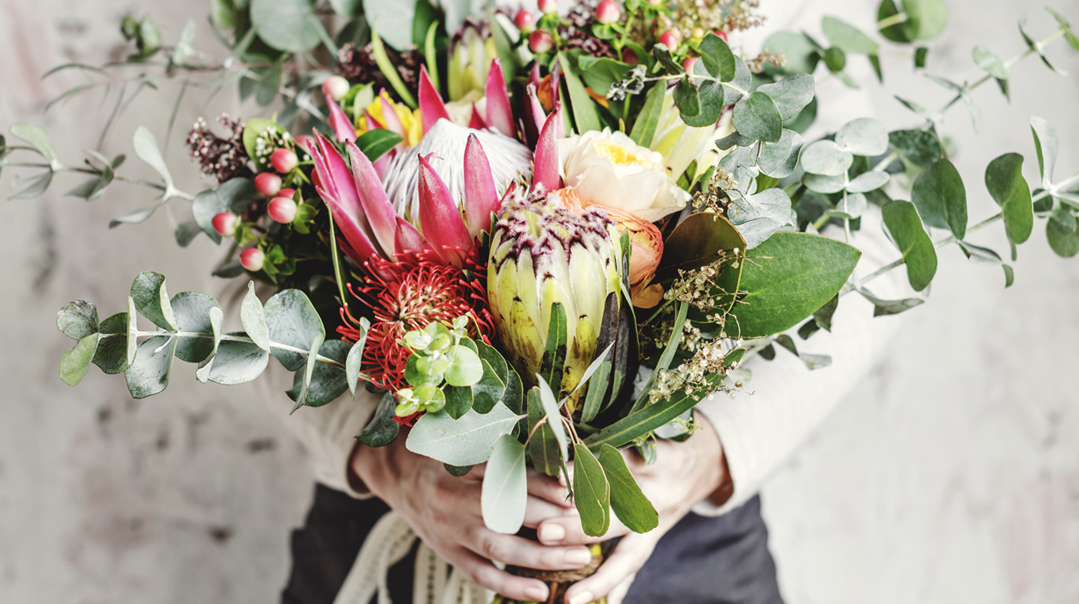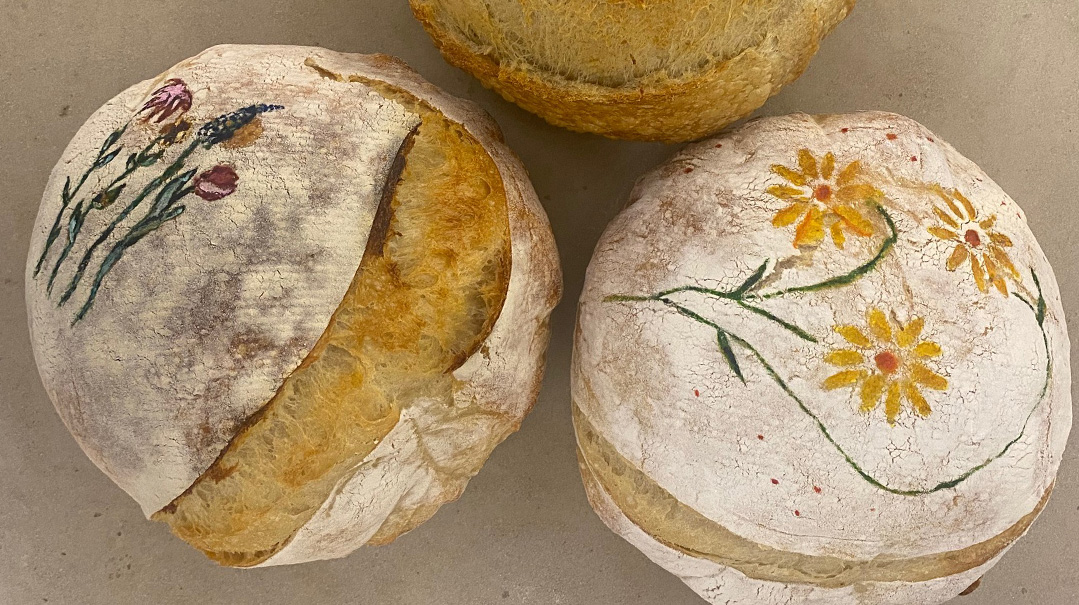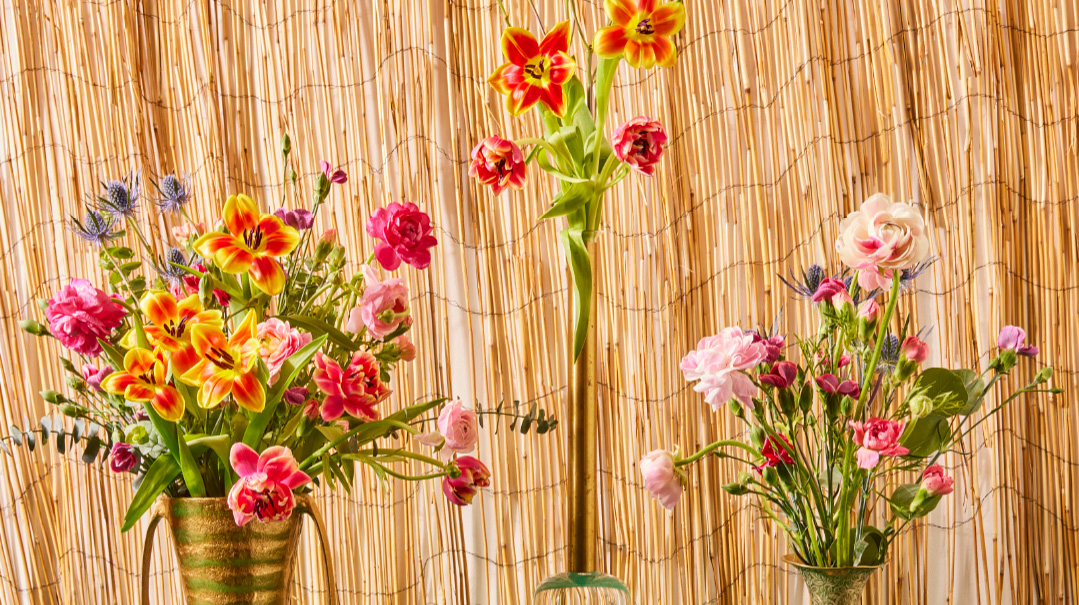Spreading the Joy
| July 31, 2019
At Family First, our goal is to inspire: with recipes, tablescape designs, and, most importantly, chesed ideas. Jews are a community-minded people, and food is one (major) medium through which we promote acts of kindness, whether through meals we make for others or the simchahs we send that food to. Elevating the mundane is a job we women don't take lightly. In the spirit of embracing that potential, we've highlighted two women who selflessly devote their time to doing just that: taking the ordinary and making it extraordinary.
Risa S. lives in Five Towns and created a chesed opportunity where she repurposes simchah florals from one event to another.
Where did the idea originate from?
I was helping set up someone’s vort in my shul on a Sunday. It looked great, but I felt like it was missing flowers. I remembered that I’d been to a gorgeous baby-girl kiddush that past Shabbos, and that the flowers had been amazing. Knowing the baalei simchah and what wonderful people they are, I had a sense they would be thrilled to share the flowers. Turns out, they were delighted for someone else to be able to enjoy them. That was my first time: I brought the flowers to the vort, and they really beautified the simchah. I think that I repurposed them again after that — I brought them to my aunt in a nursing home. The truth is, using flowers as a catalyst for chesed is very dear to me: I had a friend who passed away when she was very young, and she used to do Shavuos flowers to raise funds for tzedakah. It felt very appropriate to be doing this in her memory. My father passed away shortly thereafter, so I wanted to do it in his memory, too.
How many years have you been doing this?
Eight to ten years.
How often do people call?
Every week, I get several calls. The weeks that there are offers of flowers but no recipients, I bring it to the facility where my mother currently lives, but usually, each arrangement finds a second home. There are even situations where people even offer to donate money toward flowers.
Are you very busy with it?
Yes. People call all the time — some people want to be kept in mind all the time, some people are very last minute and need flowers for that night. I have a WhatsApp group for friends in different areas, so I can communicate who needs what and where and when.
On average, how many floral arrangements would you say there are at each simchah?
That’s very varied. Some simchahs have so many flowers that I can reuse them for a few other simchahs, and that is obviously an amazing scenario.
Are there any standout stories that you have experienced while doing this?
Once we arrange who will be taking the flowers from a previous simchah, it is up to them to arrange transportation. Sometimes, that can be tricky and difficult. I work in a gown gemach also, and the owner of the gemach wanted to offer her flowers to someone who needed them. But not only that — she wanted to help with the transportation, too. It was so thoughtful and inspiring because, yes, that is a detail that she shouldn’t have to worry about, but it was amazing to see the determination this woman had to complete the mitzvah from A to Z. (Of course, she’s also running a gown gemach, and she’s someone who’s going the extra mile for yet another chesed!)
What are your goals for this chesed venture?
My real dream would be to have someone who is technologically savvy create a website: People could volunteer to donate flowers and then recipients could access that information and get matches on their own. It could be a database of sorts — people can offer their flowers, post the location their simchah took place, and anyone who has an event or simchah a day or two later can then get in touch with them. I’ve gotten calls at 1 a.m. for someone to come pick up the flowers after a simchah. It’s so much better when someone offers them in advance so that I can be more systematized, and it would be great if that was all organized on a website for people to be matched more easily. I’ve had experiences when I’ve had to look high and low for florals for someone, and it’s a shame when I receive a last-minute donor call, and it’s already too late. If people want to donate their flowers, they should call as much in advance if they can. What is so special about this opportunity is that it’s a real mitzvah, and both sides benefit. The baalei simchah who donate the flowers are so grateful to have another use for such a short-lived purchase. It doesn’t take away any business from the florists, because people who can afford to buy their own flowers usually don’t want someone else’s bouquets or color schemes. It’s an incredible feeling to create such a mutually beneficial exchange. Not only do both baalei simchah get to enjoy the arrangements, but both sides get to feel purposeful and respectable!
Rina G. lives in Waterbury, CT. She donates her time and energy to serve as a party planner for people’s simchahs.
Where did the idea originate from?
I grew up in a close-knit community in Cleveland, and so it’s in my DNA that when you’re part of such a community, you give back in whatever capacity is available to you. When someone made a simchah, the community really showed how it wanted to partake in it and help out however it could. I have role models of women who embodied this type of chesed, doing it enough times that it became a signature characteristic. I myself have made three bar mitzvahs, and I enjoy beautifying events. In Waterbury, no matter how basic you want your simchah to be, you always had to take into consideration that you need someone to help set it up. And, even when we had a bochur doing the catering, we still needed to hire waiters. It ended up costing so much money, and so when I was at the stage of making my third bar mitzvah, I began to rethink my own simchah and brainstorm about ways to keep the costs down. There were members of the community who wanted to set certain limits of how extravagant a simchah could be. Part of their implementation plan was to offer to help set up the men’s side of the kiddush, and they approached me to be responsible for taking care of the ladies’ side. At this point in the venture, we’ve set up a system — girls in the community are involved, and I arrange everything with another woman. The concept didn’t originate with an idea I had to want to be a free party planner, it came from a practical standpoint: Baruch Hashem, we have simchahs, but let’s figure out a way to keep the costs down. It is up to us to set up the women’s side, and if we’re going to be doing it, let’s do it right. It is this mindset which has led me to invest in props, add flowers, and focus on enhancing the beauty of a simchah. Of course, there have been people who have suggested charging a minimal fee for this service. But I prefer not to pursue that path — the purpose here was never to be “the less expensive party planner”; it was always to give back to the community and provide a practical service.
How many years have you been doing it?
About one year. We are still in the process of fine-tuning exactly the parameters of what we do from our end of things and what the baalei simchah are responsible for. Some baalei simchah have everything that’s been ordered brought to hall, and our job is to just come there and set it up. Then there are some baalei simchah who really can’t afford to do that or seek to really keep the costs down. My friend will coordinate who from the community can contribute food and baked goods — salads, cut up fruit, you name it. Some baalei simchah have a hard time asking for a favor like that, but when you have a community rallying around you, eager to participate, why not?
For which type of simchahs are your services called upon most often?
We like to limit it to bar mitzvahs and a vort here and there. We want to stay focused on specific simchahs and draw a line where we’re not party planning an upsheren or a bris. Ultimately, the goal will be to work exclusively for bar mitzvahs.
What is the hardest about doing this?
Since I don’t want chesed to come at the expense of family, if I’m helping someone else, and I know my kids want me to be home, there’s an element of guilt that sits on me. Like many mothers who work the whole week, Shabbos morning is very precious to me — there is nothing like that time to slow down and reconnect. During those moments, it really is a sacrifice for me to leave the house early Shabbos morning. My girls want me to wake them up before I go, and as sweet as that is, there is no denying the accompanying guilt. Ultimately, you want your kids to value how you’re spending your time and appreciate what you do — and it feels wonderful that mine are my biggest cheerleaders. They see me working hard, but if I can give over the importance of chesed, it’s worth it.
What have been some positive outcomes since you began this undertaking?
My friend was very close to the Levin and Kaplan couple who were killed in the tragedy last Pesach. Her first thought was to do something l’ilui nishmasam, and she realized — we already do something — this simchah planning service! Her next thought was to take this to the next level on their behalf. We have them in mind while we do this, and sometimes, we’ll even hang a sign up that says, “This kiddush has been set up l’ilui nishmas…” Part of the beauty in doing this voluntarily is that I eliminate those condensed high-pressure times as a simchah approaches, as many party planners will tell you they experience. Here, whatever has been prepared is already above and beyond, because there aren’t high expectations. Because of this, I avoid all of those pressure pitfalls. In full disclosure, when something takes up so much time and the running around feels endless, it’s easy to get caught up in the fatigue and forget the purpose of why we started this. But if this is an aliyah for their neshamos, it’s worth it. It's always worth it.
Our accomplishments in life are not defined by grand gestures, large audiences for our speeches, or worldwide symposiums, as they are with the details: carpool, groceries, gas for the car, challah baking. In fact, it's the women who are doing the "little" things that effect change, their selfless acts adding up to create a beautiful picture of community, caring, and kindness. These women consider it routine to do what they can to understand others’ needs, whether it’s a phone call to change the trajectory of someone’s day, or alleviating the stress of pulling off a simchah on a tight budget. These are the women who figure out how to insert chesed into their already-overflowing calendars: do the carpool run, call a florist, buy some groceries, confirm chair rentals, bake challah, book the hall. They take care of the details so the people they help can focus on the simchah as they should. It’s up to us to garner inspiration from acts like these — chesed created from the logistics of making a simchah, and forming connections to continue the chesed chain. Here’s to happy events, celebrated together!
(Originally featured in FamilyTable, Issue 653)
Oops! We could not locate your form.












